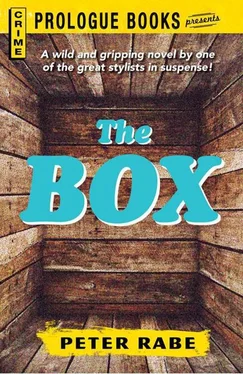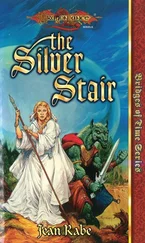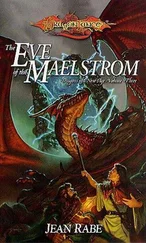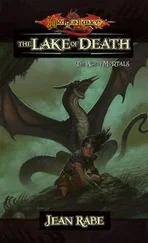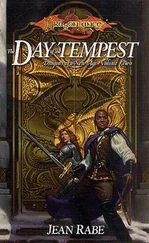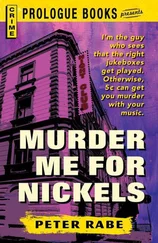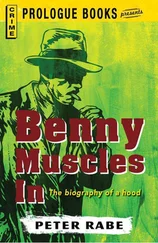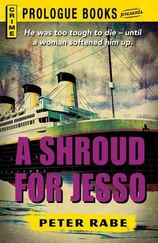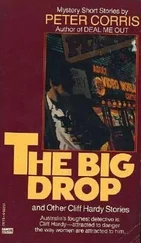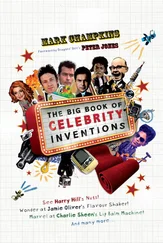Peter Rabe - The Box
Здесь есть возможность читать онлайн «Peter Rabe - The Box» весь текст электронной книги совершенно бесплатно (целиком полную версию без сокращений). В некоторых случаях можно слушать аудио, скачать через торрент в формате fb2 и присутствует краткое содержание. Жанр: Криминальный детектив, на английском языке. Описание произведения, (предисловие) а так же отзывы посетителей доступны на портале библиотеки ЛибКат.
- Название:The Box
- Автор:
- Жанр:
- Год:неизвестен
- ISBN:нет данных
- Рейтинг книги:5 / 5. Голосов: 1
-
Избранное:Добавить в избранное
- Отзывы:
-
Ваша оценка:
- 100
- 1
- 2
- 3
- 4
- 5
The Box: краткое содержание, описание и аннотация
Предлагаем к чтению аннотацию, описание, краткое содержание или предисловие (зависит от того, что написал сам автор книги «The Box»). Если вы не нашли необходимую информацию о книге — напишите в комментариях, мы постараемся отыскать её.
The Box — читать онлайн бесплатно полную книгу (весь текст) целиком
Ниже представлен текст книги, разбитый по страницам. Система сохранения места последней прочитанной страницы, позволяет с удобством читать онлайн бесплатно книгу «The Box», без необходимости каждый раз заново искать на чём Вы остановились. Поставьте закладку, и сможете в любой момент перейти на страницу, на которой закончили чтение.
Интервал:
Закладка:
She stepped away from him a little, to see his face when he would answer, but he did not say anything. He isn’t saying anything, she thought, because he’s afraid to say yes, I’ve been out of it, I can be out of it.
Her hands were still on his arms and she curled her fingers into him very hard for a moment and said, “Please stay.”
It was as artless as anything which comes at the wrong moment, which comes too late.
His face was in the sun now, the sun yellow now and his face looking not very alive. His eyes were closed. “And what do you want from me?” he said, but even when be opened his eyes he was not looking at her.
For a moment she did not know what to answer, feeling helpless trying to make sense.
“What?” he said and looked at her.
“I don’t want anything, Quinn,” she said. “I love you.” He held her for a moment. It was as artless as the phrase she had used.
Chapter 19
After the sun had gone down there was still light for a while, a very fugitive light to which no one paid much attention because it would soon be gone. On the pier the lights went on and made an immediate night even though everything still showed where the orbs of the lights did not reach.
And then, when he stood with her on the pier, he had one other chance.
“Have you heard about Turk?” she said.
“What?”
“Some children found him behind the town, in the desert. They recognized him by the army jacket. The dogs had already been there.”
All the softness went out of Quinn with the shock. And then he stayed that way, stiff and hard.
“Never mentioned a word, did he, the mayor? Too polite. He could have said, take the passport or else. For example, like Turk or else. But no. Much too polite to pressure a man right to his face.”
“Quinn, you don’t understand him. He is not playing word games and he doesn’t think that way. He kills Turk because Turk is staying. He tells you nothing because he does not even assume that you might stay.”
“I’ll show him,” said Quinn. He looked over her head, at nothing.
“There is nothing to show him, Quinn. Don’t you understand? Look at me.”
He looked at her, not really wanting to.
“Don’t go with the boat,” she said. “Go with me.”
He was stiff and cold and made no decision. Making no decision, he muffed his chance. And he saw this.
“And you,” she said, “you can’t be shown anything either, can you, Quinn?” And she walked away without waiting for an answer.
The water was black and slick like hot tar and the sky was losing the red of sundown and moving into the no-color dark, a very solid dark of night sky without moon. There would be no moon this night. In this shift of color there is the point where the sky is a heavy gray, gray being no color at all but still light, so that on the other side of the bulbs on the pier Quinn could see the fences where the warehouse ended. There was a child at the fence at one end. Quinn was sure it must be a child because of the size. It hung on the fence like a spider and seemed to be looking at him. The child made no sound and there was just the wet slap and suck of the water now and then, under the pier.
At the other end of the warehouse, on the pier, lay the box. It was on its side, as before, with one edge broken, as before.
Quinn smoked and watched the sky turn from gray to blue, and then it was dark.
No one saw him off because after all, he would be back.
When Cipolla came, he did not say anything but just went to the edge of the pier where he whistled for someone on the water to come rowing across to the pier. They had moved the boat when the loading had been done and it lay somewhere in the dark. There were no lights. Quinn walked over to Cipolla and listened for sounds.
“How long does she take, to Sicily?”
“Why?” said Cipolla.
In the afternoon, when Quinn had walked in and interrupted the conference, there he might have felt uneasy about this. Here was Cipolla being suspicious in order to add character to his store-bought status. But now on the pier Quinn felt bored with the man.
“I just asked,” Quinn said, and listened for sounds from the water again.
“I mean,” said Cipolla, “so far you’re not taking over anything, Quinn, so why in hell should you know how fast she can make the trip.”
Quinn did not discuss it, feeling as before. The lights on the warehouse wall were behind him. They showed the bare pier very clearly, but beyond that they reached a limit which was much like a wall, so that Quinn could see nothing at all on the water. He thought he heard oar sounds now.
“She doesn’t look it,” said Cipolla, “but it takes just a night and part of a day.”
Quinn could see the rowboat now. It came out of the dark and a man stood in the bow, skulling. He came out of the dark the same way he might come gliding out of a curtain.
“For the whole run, from here to the South coast of Sicily,” said Cipolla.
“Fine,” said Quinn.
Cipolla had his cigar out and was fingering it with small, rapid movements. Quinn was not watching.
“You got any kind of interest in this thing?” said Cipolla. “Don’t it strike you funny we get there in the middle of the day?”
When he was five, Quinn thought, I bet he was a brat and used to whine.
“That’s all fixed up,” said Cipolla. “We got that all fixed up. Yessir.”
“You’re shredding your cigar all to pieces,” said Quinn, and then looked elsewhere.
Cipolla started to curse to himself for any number of good reasons and then the rowboat bumped the pier where the ladder went down to the water. Cipolla climbed down first and then Quinn.
Now the pier was really empty. There was no child hanging like a spider on the wire fence any more. The two men no longer stood at the edge, and not even a dog trotted out, to watch or to look for something.
This was the first time Quinn had been on a boat since the time in the box and the motion underfoot reminded him of it. Then the motion no longer reminded him because the boat, once out of the bay, revved up to a great speed and seemed to lunge through the water rather than roll or sway. A black wind cut into Quinn on the deck and he went below, to a small space with a leather couch and a table and a desk in one corner, captain’s quarters perhaps. The captain must be on the dark bridge, thought Quinn. He had not seen anyone else either. Cipolla was in the cabin, but when Quinn walked in Cipolla left. Quinn sat down on the couch. It smelled of office-a small country office for an old lawyer, perhaps-or like a photographer’s waiting room. In the same country town. Quinn did not think of the country town and stretched out on the couch.
There was a vibration in the stuffed leather. Two big diesels, he thought. Two big diesels in the root cellar of the same country lawyer’s house in the small town. I once had a relative. I called him uncle. I know he wasn’t my father. He lived elsewhere. He was a lawyer and the uncle was a lawyer and every Christmas he gave me five dollars. God, I’m tired. And once, later, when I really needed money, he said, wait till Christmas.
Quinn took his jacket off and put it under his head so he would not smell the leather so much. When he closed his eyes there was the motion again, and more of the vibration, and it reminded him of the box. It was not the same motion and not the same vibration, he knew that, but he was reminded. Without transition Quinn went to sleep.
Cipolla looked in once and muttered something and left again. Once the captain came into the cabin, wanting to lie down on the couch, and he left. At one point there was a sudden drop in speed and the boat wallowed and rolled with the water motion entirely. Then came a surprising jump in speed with no let-up for a very long time. The pitch of the diesels was new now, which Quinn could have felt through the stuffed leather, except he slept. He woke up once and ate with three other people-one was Cipolla, he saw-but that waking did not make much of a difference. In fact Quinn was unaware of the light from the portholes, unaware whether it was day or night. Then, as long as the boat was in motion, he slept again.
Читать дальшеИнтервал:
Закладка:
Похожие книги на «The Box»
Представляем Вашему вниманию похожие книги на «The Box» списком для выбора. Мы отобрали схожую по названию и смыслу литературу в надежде предоставить читателям больше вариантов отыскать новые, интересные, ещё непрочитанные произведения.
Обсуждение, отзывы о книге «The Box» и просто собственные мнения читателей. Оставьте ваши комментарии, напишите, что Вы думаете о произведении, его смысле или главных героях. Укажите что конкретно понравилось, а что нет, и почему Вы так считаете.
